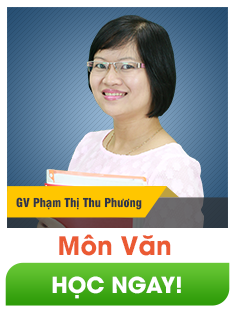Tiếng Anh 12 Unit 2 LanguagePronunciation Diphthongs /ɔɪ/, /aɪ/, and /aʊ/ 1. Listen and repeat. Then practise saying the words. 2. Work in pairs. Underline the words that contain the /ɔɪ/, /aɪ/, and /aʊ/ sounds. Listen and check. Then practise saying the sentences. Vocabulary 1. Match the words with their meanings. 2. Complete the sentences using the correct forms of the words in 1. Grammar 1. Circle the correct answer to complete each of the sentences. 2. Work in pairs. Ask and answer questions about the following topics Tổng hợp đề thi học kì 2 lớp 12 tất cả các môn - Kết nối tri thức Toán - Văn - Anh - Hoá - Sinh - Sử - Địa
Lựa chọn câu để xem lời giải nhanh hơn
Pronunciation 1 Video hướng dẫn giải Diphthongs /ɔɪ/, /aɪ/, and /aʊ/ (Nguyên âm đôi /ɔɪ/, /aɪ/, và /aʊ/) 1. Listen and repeat. Then practise saying the words. (Lắng nghe và lặp lại. Sau đó thực hành nói các từ.)
Pronunciation 2 Video hướng dẫn giải 2. Work in pairs. Underline the words that contain the /ɔɪ/, /aɪ/, and /aʊ/ sounds. Listen and check. Then practise saying the sentences. (Làm việc theo cặp. Gạch dưới những từ có chứa các âm /ɔɪ/, /aɪ/ và /aʊ/. Nghe và kiểm tra. Sau đó thực hành nói các câu.) 1. Joyce feels so proud to be a top designer. 2. The country's identity as a separate nation was never destroyed. 3. Mike and Diana came to the fair to enjoy food from around the world. 4. A noisy crowd cheered as the band finally appeared on stage. Lời giải chi tiết:
1. Joyce feels so proud to be a top designer. (Joyce cảm thấy rất tự hào khi là nhà thiết kế hàng đầu.) 2. The country's identity as a separate nation was never destroyed. (Bản sắc đất nước như một quốc gia riêng biệt không bao giờ bị phá hủy.) 3. Mike and Diana came to the fair to enjoy food from around the world. (Mike và Diana đến hội chợ để thưởng thức ẩm thực từ khắp nơi trên thế giới.) 4. A noisy crowd cheered as the band finally appeared on stage. (Một đám đông ồn ào reo hò khi ban nhạc cuối cùng cũng xuất hiện trên sân khấu.) Vocabulary 1 Video hướng dẫn giải Cultural diversity (Đa dạng văn hóa) 1. Match the words with their meanings. (Nối các từ với nghĩa của chúng.)
Lời giải chi tiết: 1 - c. origin (n): the moment or place where something starts to exist (nguồn gốc: thời điểm hoặc nơi mà một cái gì đó bắt đầu tồn tại) 2 - a. popularity (n): the state of being liked or supported by many people (phổ biến: trạng thái được nhiều người yêu thích hoặc ủng hộ) 3 - e. identity (n): the characteristics or beliefs that make people different from others (bản sắc: những đặc điểm hoặc niềm tin làm cho con người khác biệt với những người khác) 4 - b. festivities (n): the activities that are organised to celebrate a special event (lễ hội: các hoạt động được tổ chức để kỷ niệm một sự kiện đặc biệt) 5 - d. trend (n): a general direction in which a situation is changing (xu hướng: một hướng chung trong đó một tình huống đang thay đổi) Vocabulary 2 Video hướng dẫn giải 2. Complete the sentences using the correct forms of the words in 1. (Hoàn thành câu sử dụng dạng đúng của các từ ở bài 1.) 1. Language is considered the most important feature of a nation's ______. 2. Most New Year's ______ begin on 31 December. 3. The ______ of that custom is still a mystery to local people. 4. This article discusses current ______ in fashion styles among young people. 5. The ______ of cycling among young people has increased. Lời giải chi tiết: 1. Language is considered the most important feature of a nation's identity. (Ngôn ngữ được coi là đặc điểm quan trọng nhất của bản sắc dân tộc.) 2. Most New Year's festivities begin on 31 December. (Hầu hết các lễ hội năm mới bắt đầu vào ngày 31 tháng 12.) 3. The origin of that custom is still a mystery to local people. (Nguồn gốc của phong tục đó vẫn còn là điều bí ẩn đối với người dân địa phương.) 4. This article discusses current trends in fashion styles among young people. (Bài viết bàn về xu hướng thời trang hiện nay của giới trẻ.) 5. The popularity of cycling among young people has increased. (Xu hướng đi xe đạp trong giới trẻ ngày càng phổ biến.) Grammar 1 Video hướng dẫn giải 1. Circle the correct answer to complete each of the sentences. (Khoanh tròn vào đáp án đúng để hoàn thành mỗi câu.) 1. One of the most common traditions during the Mid-Autumn Festival is admiring full moon/the full moon. 2. Charles Lindbergh was the first person to fly solo across Atlantic/the Atlantic. 3. The Vietnamese women/Vietnamese women usually wear ao dai on special occasions. 4. Many students experience culture shock when they go to study in US/the US. 5. My parents have never been to Rome/the Rome. Phương pháp giải: Mạo từ a/an/the - Sử dụng mạo từ không xác định a và an trước danh từ số ít, đếm được khi người đọc hoặc người nghe không biết chúng ta đang nói đến danh từ nào. Ví dụ: I want to buy a souvenir. (Tôi muốn mua một món quà lưu niệm.) - Sử dụng mạo từ xác định the trước danh từ số ít hoặc số nhiều khi chúng ta nghĩ rằng người đọc hoặc người nghe biết chúng ta đang đề cập đến điều gì: + Vật duy nhất nói chung hoặc vật duy nhất trong ngữ cảnh đó Ví dụ: The sun rises in the east. (Mặt trời mọc ở phía đông.) + Vật đã được đề cập Ví dụ: A boy lost a watch. A woman found the watch and returned it to the boy. (Một cậu bé bị mất một chiếc đồng hồ. Một người phụ nữ tìm thấy chiếc đồng hồ và trả lại cho cậu bé.) + Đề cập tới nhạc cụ Ví dụ: I'm learning to play the piano. (Tôi đang học chơi đàn piano.) - Chúng ta cũng sử dụng mạo từ xác định the với: + Các quốc gia có tên bao gồm các từ như vương quốc hoặc tiểu bang hoặc các quốc gia có danh từ số nhiều làm tên. Ví dụ: the UK (the United Kingdom), the US (the United States of America), the Philippines + Đại dương, biển, dãy núi, v.v. Ví dụ: The Pacific is the largest of all oceans. (Thái Bình Dương là đại dương lớn nhất trong tất cả các đại dương.) - Chúng ta không cần mạo từ với danh từ số nhiều, danh từ đếm được hoặc danh từ không đếm được được sử dụng một cách chung chung hoặc không cụ thể. Ví dụ: Tigers are endangered animals. (Hổ là loài động vật có nguy cơ tuyệt chủng.) Lời giải chi tiết: 1. One of the most common traditions during the Mid-Autumn Festival is admiring the full moon. (Một trong những truyền thống phổ biến nhất trong dịp Tết Trung thu là chiêm ngưỡng trăng tròn.) Giải thích: mặt trăng là thứ duy nhất => chọn mạo từ xác định “the” 2. Charles Lindbergh was the first person to fly solo across the Atlantic. (Charles Lindbergh là người đầu tiên một mình bay qua Đại Tây Dương.) Giải thích: Atlantic (Đại Tây Dương) => chọn mạo từ xác định “the” 3. Vietnamese women usually wear ao dai on special occasions. (Phụ nữ Việt Nam thường mặc áo dài vào những dịp đặc biệt.) Giải thích: “Vietnamese women” (phụ nữ Việt Nam) là danh từ số nhiều chỉ phụ nữ nói chung => không cần mạo từ 4. Many students experience culture shock when they go to study in the US. (Nhiều sinh viên bị sốc văn hóa khi sang Mỹ du học.) Giải thích: Mỹ là quốc gia gồm có nhiều tiểu bang => chọn mạo từ xác định “the” 5. My parents have never been to Rome. (Bố mẹ tôi chưa bao giờ đến Rome.) Giải thích: Rome là tên quốc gia hình thức số ít => không cần mạo từ Grammar 2 Video hướng dẫn giải 2. Work in pairs. Ask and answer questions about the following topics using the correct articles. (Làm việc theo cặp. Hỏi và trả lời các câu hỏi về các chủ đề sau bằng cách sử dụng các mạo từ chính xác.) A: Can you play the guitar? (Bạn có thể chơi violin không?) B: No, I can't, but I can play the piano. (Không, tôi không thể, nhưng tôi có thể chơi piano.) Lời giải chi tiết: Musical instruments (Nhạc cụ) A: Are you learning to play the violin? (Bạn đang học chơi violin phải không?) B: No, I’m not but I’m learning to play the guitar. (Không, nhưng tôi đang học chơi ghi-ta.) Countries (Đất nước) A: Have you ever been to the UK? (Bạn đã đến Vương quốc Anh chưa?) B: No, I haven’t. (Tôi chưa.) A: Would you like to travel to the UK? (Bạn có muốn đi du lịch đến Vương quốc Anh không?) B: I’d love to. I also want to go to the US. (Tôi rất muốn. Tôi cũng muốn đi Mỹ nữa.) Seas, oceans, mountain ranges (Biển, đại dương, dãy núi) A: Where are the Alps located? (Dãy Alps ở đâu?) B: They are located in Europe. (Chúng ở châu Âu.) A: Do you want to swim in the Red Sea? (Bạn muốn bơi ơở Biển Đỏ Không?) B: No, I don’t. I can’t swim. (Không. Tôi Không biết bơi.) A: Have you ever been to the Himalayas? (Bạn đã bao giờ đến dãy Himalaya chưa?) B: Of course. The Himalayas are truly majestic with their towering peaks. (Tất nhiên. Dãy Himalaya thực sự hùng vĩ với những đỉnh núi cao chót vót.)
>> 2K8 Chú ý! Lộ Trình Sun 2026 - 3IN1 - 1 lộ trình ôn 3 kì thi (Luyện thi 26+ TN THPT, 90+ ĐGNL HN, 900+ ĐGNL HCM, 70+ ĐGTD - Click xem ngay) tại Tuyensinh247.com.Đầy đủ theo 3 đầu sách, Thầy Cô giáo giỏi, luyện thi theo 3 giai đoạn: Nền tảng lớp 12, Luyện thi chuyên sâu, Luyện đề đủ dạng đáp ứng mọi kì thi.
|






















